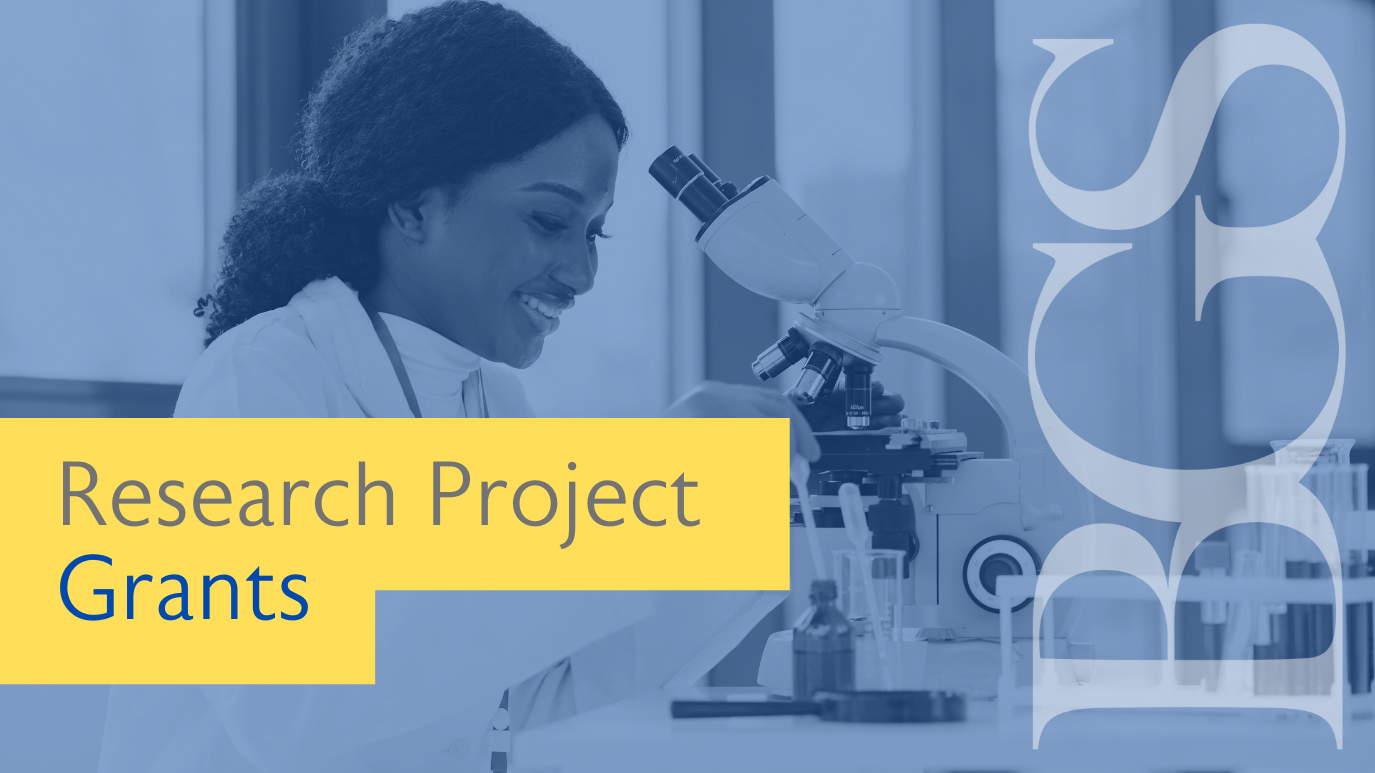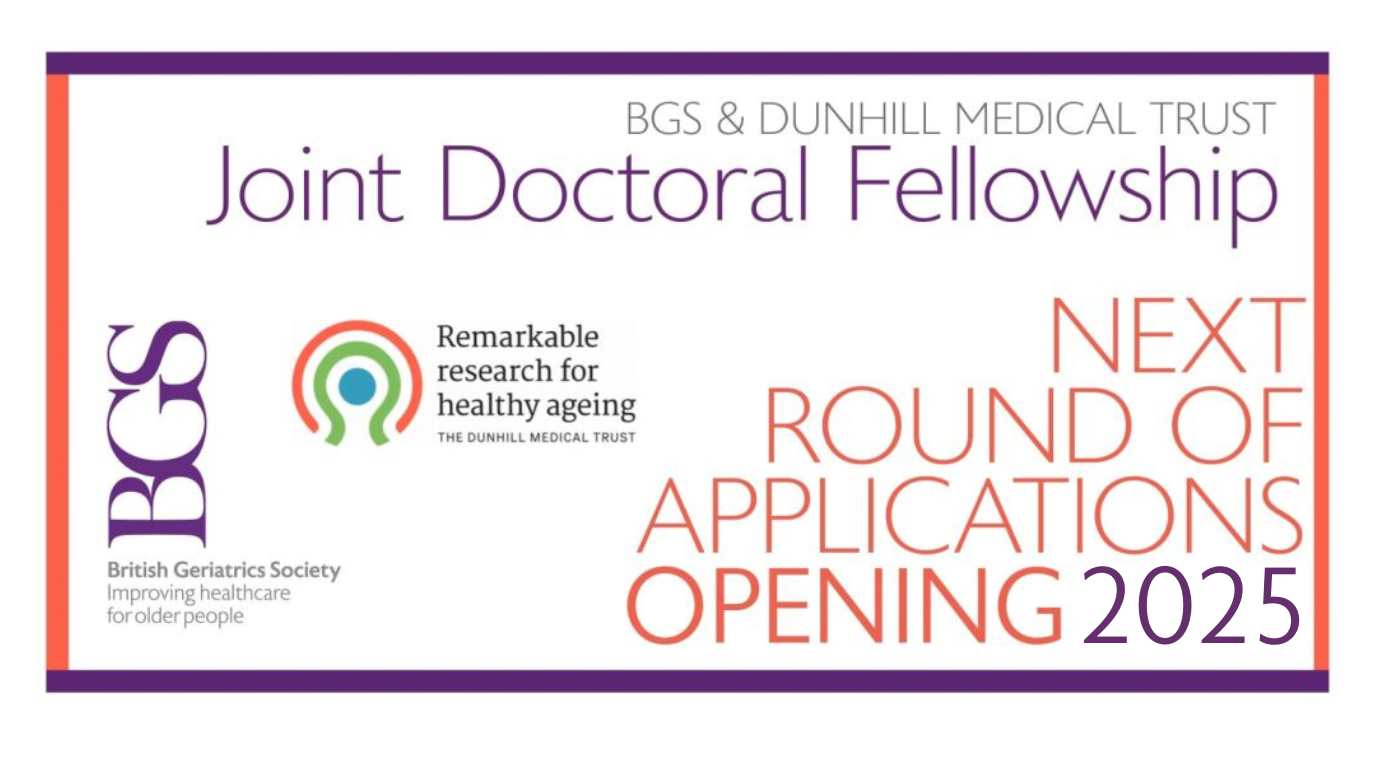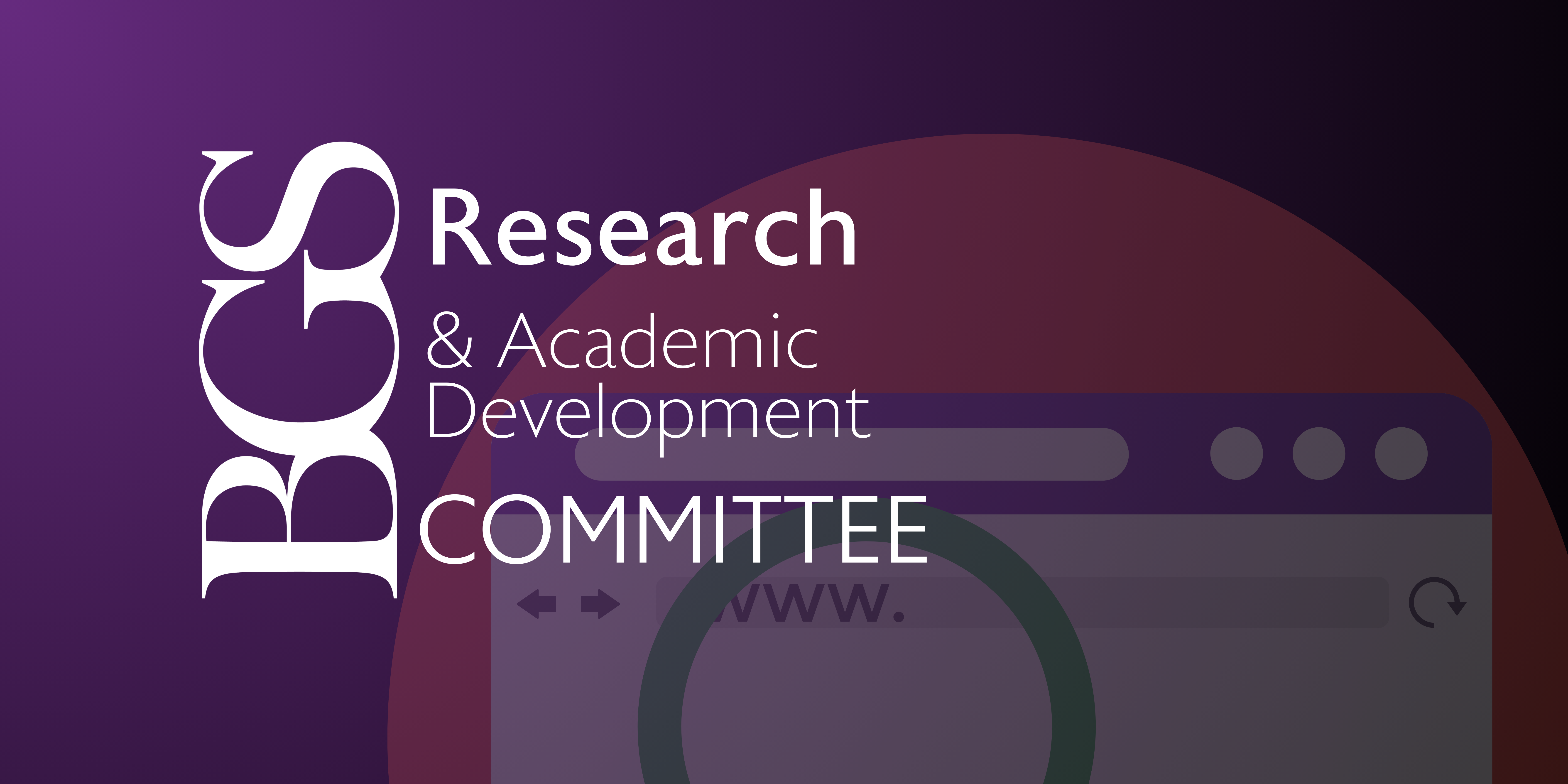Research Hub: Getting involved with research
This section of the Research Hub provides an introduction to the topic and looks at how and why to get involved in geriatric medicine research.
Why get involved with research?
Research into ageing and older people's health comes in many different forms, as do research interests, methods, and the backgrounds of researchers themselves.
Hear from some of our members about what excites them about research in this short introductory video. The full videos can be found further down this page.
- Is research for me?
In this article, BGS members Alasdair MacLullich, Miles Witham and Tania Kalsi discuss what to consider when thinking about doing research, what you will gain and why research in the field of geriatric medicine is important.
How to get involved in research
Knowing where to start out on your research journey can be a daunting first step. There are lots of different routes that you can take, and some of these are explored below.
-
Doing research part time alongside clinical work
If you’re interested in doing research, but are reluctant to commit to a lengthy period out of clinical training in order to do research full time, doing research part time alongside your clinical job is one option.
-
UK Research centres
There are several centres of excellence in ageing research around the UK. Some of these specialise in particular sub-specialisms of geriatric medicine. This interactive map identifies these centres and their research focus.
-
How to get funding and fellowship applications
So you’ve decided that you want to become involved in research – well done, this is the beginning of an exciting and rewarding journey! After the initial steps of finding a research area, supervisor and designing a research project you will need to think about funding.
Doctors
As well as being part of the 2022 curriculum for geriatric medicine trainees, taking on a research role alongside clinical commitments can be a fulfilling career path for doctors at any stage of their career, offering benefits to staff and older patients alike.
Trainees and non-consultant doctors
- BGS Research Curriculum Competency Toolkit for Geriatric Medicine Specialist Trainees
A toolkit for fulfilling Academic Competencies/CIP Carrying out research and managing data appropriately. Inclues a list of research methodology courses signposting and information on recruiting participants to studies.
- Specialised Foundation Programme (SFP): Getting involved in research as a Foundation doctor
It's never too early to take your first steps into research as a Foundation doctor. BGS Trainees' Council member Dr Katherine Chin shares her experiences of the Specialised Foundation Programme (previously known as the Academic Foundation Programme).
- BGS Research Project Grant: New for 2023
Non-consultant doctors (Specialty Trainee, Specialist, Associate Specialist and Specialty Doctors' grades) are among those eligible to apply for a new BGS Research Project Grant, which opens twice a year. Up to two grants with a maximum value of £10,000 are available each round, which may be used for either clinical or non-clinical research.
- BGS & Dunhill Medical Trust Joint Doctoral Fellowship and Dunhill Academy Excellence Awards
BGS partners with the Dunhill Medical Trust to co-fund Doctoral Training Fellowships to support BGS members to undertake research relevant to age-related diseases and frailty. The Fellowships are open to doctors, nurses and AHPs working with older people. Members of the Dunhill Medical Trust Academy can also apply for the Academy Excellence Awards.
Early Career Researcher
Dr Ni Lochlainn is a Geriatrics Registrar currently completing her PhD at King’s College London with Professor Claire Steves.
Her research interests are primarily the microbiome and its relationship with sarcopenia. She became interested in both geriatrics and research whilst a medical student in Dublin, and she held an NIHR funded Academic Clinical Fellow prior to her PhD. She is currently a member of the prestigious European Academy for Medicine of Ageing cohort and received the BGS Rising Star Award in 2021.
Research active (non-academic) clinician
Dr Upul Fernando is a consultant geriatrician working at Walsall Manor Hospital, West Midlands.
Dr Fernando is the specialty lead in syncope and falls and PI for the CONFORM-OH trial running at Walsall Manor Hospital. Here, he talks to Dr Helena Lee, academic geriatric medicine registrar, about how he became involved with the CONFORM-OH trial, advice to 'jobbing' clinicians about how to get incorporate research alongside a clinical schedule, and the benefits of doing research to the geriatric medicine department.
Medical Students
It's never too early to start thinking about research. Medical students and students in other health-related disciplines may find that they develop particular research interests or are inspired by their lecturers or Professors to investigate this as a career option.
Some universities offer the opportunity to study an 'intercalating degree' in medicine, which allows a year out to pursue research interests, generally in the third or fourth year of your medical degree. Your medical elective is another opportunity to get involved in research and gain experience in this area.
- Intercalated degrees - BMA
Explains how intercalating works, some of the benefits, and what to consider before making a decision to follow this path.
- The UK database of intercalated courses for medical students
Search intercalated undergraduate and postgraduate programmes for medicine students by location or interest.
- How to decide on your medical elective - RCP
General advice on planning your medical elective in research or other interest.
- Electives at medical school - NHS Health Careers
More general advice and links to help plan an elective placement in your chosen area.
- BGS Grants and Prizes
The BGS offers some grants and prizes to medical students for elective and other work.
Allied Health Professionals and Aligned Researchers
There is a broad and growing community of researchers made up of nurses, allied health professionals (AHPs) and other professionals with training in aligned fields.
- BGS Research Project Grant: New for 2023
Nurses and AHPs are among those eligible to apply for a new BGS Research Project Grant, which opens twice a year. Up to two grants with a maximum value of £10,000 are available each round, which may be used for either clinical or non-clinical research.
- BGS & Dunhill Medical Trust Joint Doctoral Fellowship and Dunhill Academy Excellence Awards
BGS partners with the Dunhill Medical Trust to co-fund Doctoral Training Fellowships to support BGS members to undertake research relevant to age-related diseases and frailty. The Fellowships are open to doctors, nurses and AHPs working with older people. Members of the Dunhill Medical Trust Academy can also apply for the Academy Excellence Awards.
Academic Physiotherapist
Professor Vicki Goodwin MBE is a Professor of Ageing and Rehabilitation at the University of Exeter.
She is a physiotherapist and her primary research interest is the rehabilitation of older people with a specialist interest in frailty and falls. She has been recognised for her significant contribution to the development of services for older people and advancement of the physiotherapy profession with a Fellowship of the Chartered Society of Physiotherapy and was awarded a MBE in 2017 for services to physiotherapy.
Researcher in Gerontology
Dr Fothergill-Misbah is a Research Associate at Newcastle University with a background in Biomedical Sciences, Gerontology and Global Public Health.
Her research interests are primarily the lived experience of disease in later life, and the impact of chronic disease, particularly Parkinson’s disease. She is also interested in translating research into policy and was contracted on a consultancy basis to write the first Technical Brief on Parkinson’s disease for the Brain Health Unit of the World Health Organization.
Rising Star Awards
The BGS Rising Star Awards were inaugurated in 2014 to recognise doctors, nurses and AHPs who have made exceptional contributions to the field of older people's healthcare, early in their careers.
Two awards are available each year: one for research contributions that have translated into, or are in the process of being translated into, improvements to the care of older people, and the other for a clinical quality project which improves the care of older people with frailty. The awards are funded by generous donations from the families of the late Dr Jim George and the late Dr John Dall.
Rising Star Awards
The BGS Rising Star Awards were inaugurated in 2014 to recognise doctors, nurses and AHPs who have made exceptional contributions to the field of older people's healthcare, early in their careers.
Two awards are available each year: one for research contributions that have translated into, or are in the process of being translated into, improvements to the care of older people, and the other for a clinical quality project which improves the care of older people with frailty. The awards are funded by generous donations from the families of the late Dr Jim George and the late Dr John Dall.
Geriatric Medicine Research Collaborative (GeMRC)
The Geriatric Medicine Research Collaborative (GeMRC) is a trainee led research network. The aim of the collaborative is to produce high quality, multi-centre research and create opportunities for non-researchers to engage with research in older people. Whilst it is aimed at Geriatric Medicine trainees anyone can be involved. All contributors are listed in the authorship of each output.
GeMRC is a national network but has previously expanded to include international colleagues for a project investigating point of care predictors of poor outcome in COVID-19. Other recent projects have included an investigation of delirium screening and recognition in acute hospitals and an audit of the success of fast-track discharge. GeMRC has successfully published to date eight papers in high impact journals.
The latest project is FORCE:SEE – an investigation in to frailty and outcome measures in clinical environments. This is different from previous projects as it is the first project to be conducted as a research study and not as either an audit or QIP as previous projects were.
There are many different opportunities to get involved with GeMRC from data collection to steering committee member to site lead. None of the roles require prior experience, a specific grade or even being a doctor. There is plenty of guidance for everyone involved and is a great first step into research and making a difference to patient care. If you would like to get involved please contact the GeMRC team.
Related blogs
Geriatric Medicine Research Collaborative (GeMRC)
The Geriatric Medicine Research Collaborative (GeMRC) is a trainee led research network. The aim of the collaborative is to produce high quality, multi-centre research and create opportunities for non-researchers to engage with research in older people. Whilst it is aimed at Geriatric Medicine trainees anyone can be involved. All contributors are listed in the authorship of each output.
GeMRC is a national network but has previously expanded to include international colleagues for a project investigating point of care predictors of poor outcome in COVID-19. Other recent projects have included an investigation of delirium screening and recognition in acute hospitals and an audit of the success of fast-track discharge. GeMRC has successfully published to date eight papers in high impact journals.
The latest project is FORCE:SEE – an investigation in to frailty and outcome measures in clinical environments. This is different from previous projects as it is the first project to be conducted as a research study and not as either an audit or QIP as previous projects were.
There are many different opportunities to get involved with GeMRC from data collection to steering committee member to site lead. None of the roles require prior experience, a specific grade or even being a doctor. There is plenty of guidance for everyone involved and is a great first step into research and making a difference to patient care. If you would like to get involved please contact the GeMRC team.













